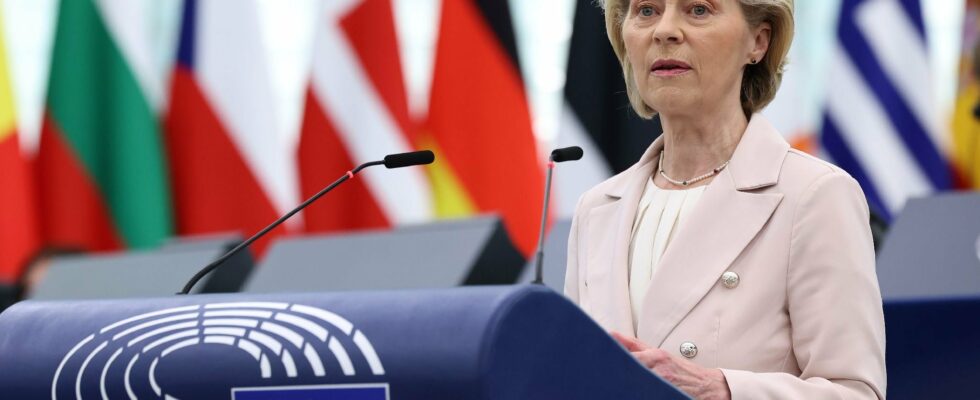Brussels published reports at midday on the economic and budgetary situation of each of the 27 countries of the European Union. And unsurprisingly, the Commission noted that seven of them, including France, exceeded last year the limit of 3% of GDP for public deficits set by the Stability Pact which also limits debt to 60%. of GDP. It will therefore open the way to disciplinary procedures.
In addition to France, these procedures “are justified” for Italy, Belgium, Hungary, Poland, Slovakia and Malta, the Commission announced. Romania was already subject to this disciplinary procedure since 2019. They will have to take corrective measures to comply with the budgetary rules of the European Union in the future, under penalty of financial sanctions.
Formally, the European executive will propose to member states to open the procedures at a future meeting of finance ministers on July 16. These rules were put on hold after 2020 because of the economic crisis linked to Covid and then the war in Ukraine. They were reformed and reactivated this year.
“This does not mean a back to normal because we are not living in normal times and certainly not one return to austerity, because it would be a terrible mistake,” said the European Commissioner for the Economy, Paolo Gentiloni, urging “budgetary prudence” in the face of geopolitical risks.
The Stability Pact in principle provides for financial sanctions of 0.1% of GDP per year for countries that do not implement the imposed corrections, or nearly 2.5 billion euros in the case of France. . In reality, these politically explosive punishments were never applied.
France, whose last budgetary surplus dates back to 1974, has been in an excessive deficit procedure most of the time since the creation of the euro at the turn of the 2000s. However, it emerged from it in 2017.
Questioning the reforms
The country, in the sights of rating agencies, has been in political crisis since the dissolution of the National Assembly decided by President Emmanuel Macron after his camp’s defeat in the European elections on June 9.
Borrowing rates in Europe’s second-largest economy suddenly rose and the Paris Stock Exchange fell amid the instability. The far right and left oppositions, leading in the polls, also plan to open the spending tap wide but also to reverse the emblematic pension and labor market reforms recommended by Brussels.
Enough to compromise Paris’ promise, already considered not very credible, to return in 2027 below the 3% threshold with regard to the deficit. Political standoffs are already looming between Rome and Paris, on the one hand, and the Commission and the countries that are most particular about respecting budgetary rules, including Germany, on the other.
Public finances heavily involved
Correcting slippages will in any case be difficult in a context of low growth and geopolitical tensions. Public finances are heavily used to support Ukraine against Russia, but also to invest in the green transition in the face of global warming. European rules require countries with excessive deficits to reduce the deficit by a minimum of 0.5 points per year, which requires a massive effort of austerity.
By October, the Twenty-Seven will have to send their multi-annual budgetary plans to Brussels which will be scrutinized by the Commission and the Council, the body of the Member States. In November, Brussels will give its recommendations for the restoration of public accounts. The highest EU deficits were recorded last year in Italy (7.4% of GDP), Hungary (6.7%), Romania (6.6%), France (5. 5%) and in Poland (5.1%).
The Stability Pact was adopted in 1997 in anticipation of the arrival of the single currency on January 1, 1999. Responding to Germany’s concern to prevent member countries from pursuing lax budgetary policies, it sets an accounting objective equilibrium.
